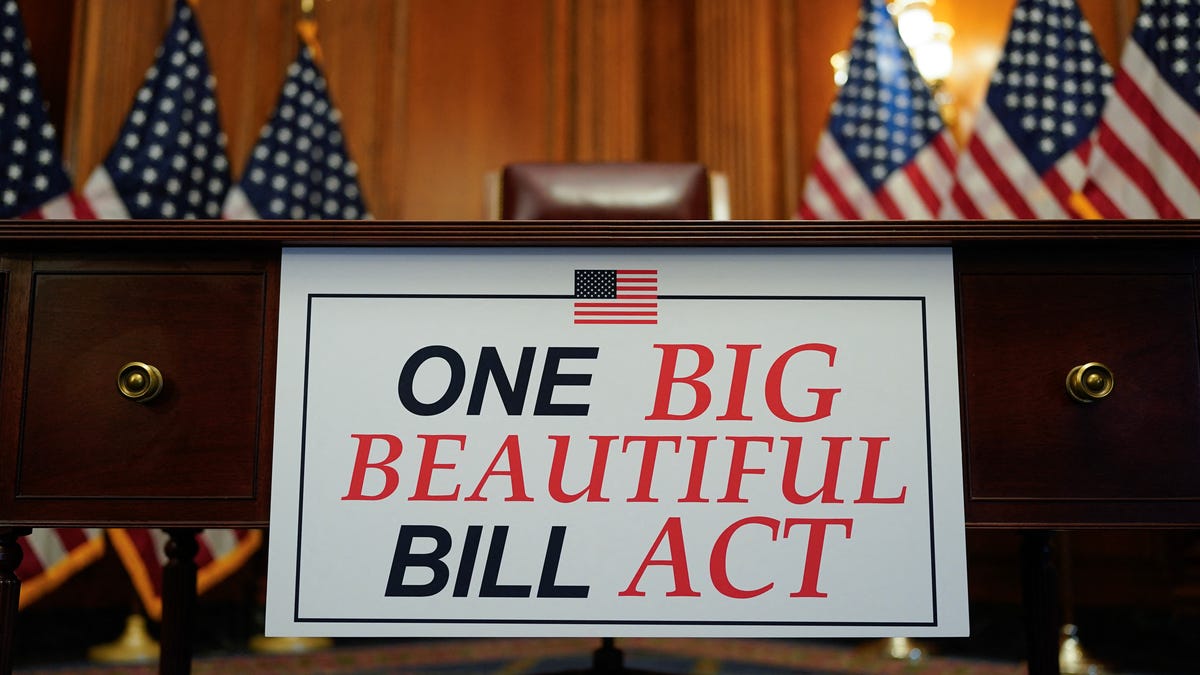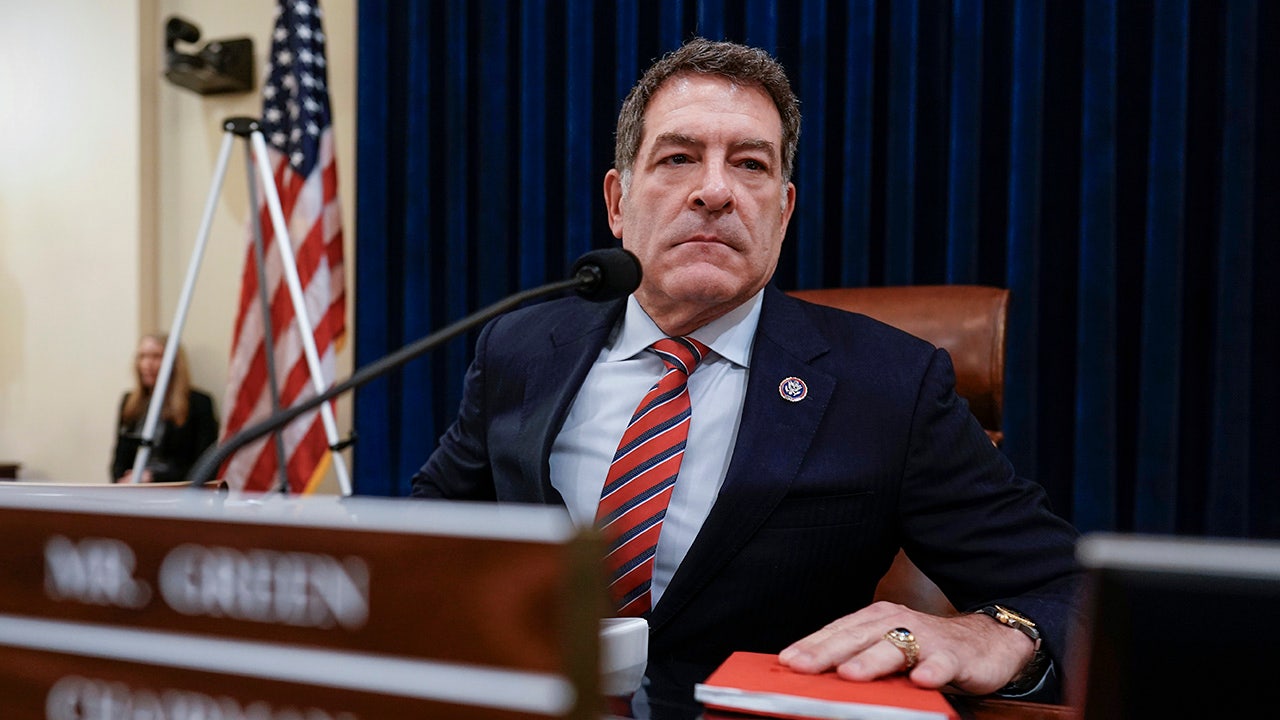Finance
Breaking The Paycheck-To-Paycheck Cycle: 7 Steps To Financial Security

A lot of Americans still struggle when it comes to managing their money. According to a recent LendingClub report, 64% of the U.S. population was living paycheck to paycheck. And that applied even to 48% of Americans with annual incomes of more than $100,000!
payday concept calendar with marker and circled day of salary
getty
The average unexpected emergency expense runs about $1,700, according to a new report co-authored by PYMNTS and LendingClub. What’s worse, the Federal Reserve’s 2022 Economic Well-Being of U.S. A Household report found that just 54% of adults had three months of emergency savings and recent data from Northwestern Mutual reveals that 43% of Americans cite outliving savings as a major retirement concern.
If any of these grim statistics apply to you – and you are worried about running out of money – I suggest some steps you can take now to help find your way to financial security.
Step 1: Create goals and priorities: Figuring out your future goals (long and short term) and your priorities is the first step in managing your money. Acknowledging that you need priorities is the second step! Short-term goals to reach in the next year or so: Build an emergency fund that can cover at least three months of living expenses. Look at paying off credit card balances. Longer-term goals: Saving for retirement, buying a home, college for kids, and retirement.
Step 2: Agree on goals with your partner: Couples who take a team approach to their finances are more likely to achieve their goals. Doing a monthly budget together and talking about it regularly are the first steps in making that a reality. Be open about your credit cards and finances. You need to know what direction you want your financial lives to take before crafting a budget.
Step 3: Live below your means and start a budget: Budgets are a critical tool for helping you eventually not live paycheck to paycheck and be more equipped to actively save. Now is a good time to start living below your means to reduce your expenses. Take a hard look at what you really need and what you can live without. Can you wait longer between salon hair colorings or pedicures? Do you really need those lunches out? Or to order takeout nearly every night? There are three basic steps to setting a budget: identifying how your money is being spent; evaluating those expenses to see how they mesh with your financial priorities and cutting or tracking your ongoing expenses to see that you stay within those guidelines.
Step 4: Make it easy to track spending: We at SungroupWP have a great budget form on our website. Google Spreadsheet and Microsoft Excel also offer ways to keep a budget. I like my credit card company’s free apps that help detail all my spending, but if you need some more to consolidate all your expenses, some of the most popular apps include Intuit’s Quickbooks, Quicken, Mint, PocketGuard, GoodBudget, Unsplurge, and Wally.
Step 5: Stop splurges before they start: Nothing springs a leak in a budget faster than those unplanned last-minute little splurges that soon add up to a tidal wave. So don’t go to a grocery store when you’re hungry—or order online and go for pickup only to cut down on temptation. Compare your grocery list to what’s already in your refrigerator, freezer, or pantry. Use what you have before buying more.
Step 6:Take advantage of opportunities to save: If you are working from home, you should be saving big time in commuting costs, clothing, business lunches and conferences, and the like. You might consider ditching one of your family’s cars and save on insurance, repairs, and gas.
Step 7: Bring in additional income: Many have found a second job is a necessity, either for their finances or for their psyche. Identify side jobs you might be interested in, question people who do them, and look at salary rates using Glassdoor, Payscale or Salary.com. Explore online listings, job ads, and referrals from clients. Find other ways to bring in additional income – get creative. There are lots of ways in today’s gig economy to bring in some side income, even remotely.

Finance
Cascadia Announces Closing of Financing

/NOT FOR DISTRIBUTION TO U.S. NEWSWIRE SERVICES OR FOR DISSEMINATION IN THE UNITED STATES/
VANCOUVER, BC, July 3, 2025 /CNW/ – Cascadia Minerals Ltd. (“Cascadia“) (TSXV:CAM) (OTCQB:CAMNF) is pleased to announce that it has oversubscribed and closed its previously announced non-brokered private placement (the “Placement“) for total proceeds of C$2,274,385, in conjunction with Cascadia’s planned acquisition of Granite Creek Copper Ltd. (the “Transaction“), see news release dated June 9, 2025 for more details. The Placement was oversubscribed by 174,180 subscription receipts.
The Placement consisted of the sale of: (a) 14,459,894 subscription receipts (“Subscription Receipts“) at a price of $0.14 per Subscription Receipt for gross proceeds of C$2,024,385; and (b) 1,785,714 units (“Cascadia Units“) at a price of C$0.14 per Cascadia Unit for gross proceeds of C$250,000. Each Subscription Receipt entitles the holder to receive at the effective time of the Transaction one unit of Cascadia consisting of one Cascadia share and one common share purchase warrant (a “Warrant“). Each Warrant will entitle the holder thereof to purchase an additional Cascadia share at a price of $0.24 per share for a period of two years following the date of issuance of the Warrant. The Cascadia Units also consist of one Cascadia share and one common share purchase warrant having the same terms as the Warrants forming part of the units underlying the Subscription Receipts.
The proceeds from the sale of the Subscription Receipts will be held in escrow pending the closing of the Transaction. If the closing of the Transaction has not completed by August 29, 2025, the Subscription Receipts will be cancelled and the escrowed proceeds returned to the subscribers. Cascadia will use the proceeds of the Placement to pay expenses associated with the Transaction and to conduct exploration on the Carmacks Project.
Cascadia will pay cash finders’ fees totalling $90,623 and issue a total of 647,308 finder warrants (“Finder Warrants“) in connection with the financing, with such fees to be paid and warrants to be issued at the closing of the Transaction. Each Finder Warrant shall be exercisable into one common share of Cascadia for a period of 24 months from issue, at an exercise price of $0.24 per Finder Warrant.
The Cascadia shares and warrants comprising the Cascadia Units and any Cascadia shares issuable upon the exercise of these warrants are subject to a hold period in Canada until November 4, 2025. The Subscription Receipts are also subject to a hold period in Canada which ends on November 4, 2025, but the Cascadia shares and Warrants issuable upon the conversion of the Subscription Receipts at the effective time of the Transaction and any Cascadia shares issued on the exercise of the Warrants will not be subject to a resale hold period in Canada.
Finance
Financial Capitalism Is More Dangerous Than Ever Today

Some writers have taken the period since the crisis of financial capitalism in 2008 to mark the “end of neoliberalism” or the advent of “post-neoliberalism.” Others have described it as a “mutant,” “zombie” iteration of a neoliberalism that is in effect “half-dead, half-alive.”
In an era of rising protectionism, right-wing ideology, and deglobalization, neoliberal ideologies have certainly experienced a backlash. But they have also rearticulated themselves by forging new alliances and taking on novel forms. Three dimensions of the current conjuncture are worth highlighting.
Today, as in the 1960s, there is an immense interest in the form that money takes as a central factor in politics and social life. Monetary policy is more than ever a political question of direct concern to people otherwise uninterested in its arcana. There is reason to think that the global system of money and finance is approaching a disruptive threshold of historic significance, with the potential to change how societies invest, insure, and trade.
Of course, the form of money — essentially the socially and politically constructed “promise to pay” — has always fluctuated. What is distinctive about the transformation of money in the early-twenty-first century is, first of all, the proliferation of digital currencies and tokens. Operating in the shadows of hegemonic monetary systems, these cannot simply be seen as tools for bottom-up emancipation pitted against authoritarian central banks and austerity-inducing monetary politics, as is sometimes claimed by their boosters.
Rather, non-fungible tokens, Web3, blockchain technology, crypto, and decentralized autonomous organizations are at the forefront of a financial revolution driven increasingly by transnational platforms and central banks themselves. In the name of flexibility and efficiency, they prefigure the end of physical cash, thereby jeopardizing privacy and further undermining democracy. Such developments signal the exhaustion of the quantitative easing (QE) regime since 2019.
Although they are far too complex to be analyzed in any detail here, they represent one prospectus for the so-called post-neoliberal order, whose features cannot be understood as progressive, promising in some instances to surrender still more authority to the lords of finance themselves, potentially directly by administrative means.
The terms in which this new monetary architecture is discussed recall earlier debates. In the field of digital currencies, for example, the highly restricted, limited, and market-disciplining logic of Bitcoin bears comparison to the built-in scarcity of gold — and if introduced more broadly, could reproduce the logic of the gold standard — while the seemingly endless proliferation of absurdly branded private money over the decade of QE resembles the wild speculation enabled by free-floating exchange rates.
To this familiar opposition, a third pole may be added: central bank digital currency, issued either formally by central banks themselves or — what is functionally equivalent — by the largest private banks. This novel form of money is distinct in that it introduces the prospect of directly imposing socio-political conditions on transactions or penalizing savers through very low interest rates.
It is perhaps for this reason that the more principled neoliberals themselves have joined in to sound the alarm when it comes to some of these innovations. As the historian Adam Tooze has suggested, paraphrasing Antonio Gramsci, “crypto is the morbid symptom of an interregnum, an interregnum in which the gold standard is dead but a fully political money that dares to speak its name has not yet been born.”
Another live issue in contemporary discussions is the status of the dollar as the world reserve currency, an “exorbitant privilege” ratified by the shift to floating exchange rates. The effects of this fateful decision, as a volume published on its fiftieth anniversary records, “went far beyond the international monetary system and have had momentous geopolitical and political as well as economic and financial implications.”
Today, if dollar hegemony remains intact, ever more voices question its permanence, and with it, the ability of the United States to maintain its unrivaled geopolitical position. In this regard, the present moment echoes that of the 1970s, when monetary policy reflected the jostling between world powers and management of the relations among allies. With the introduction of the BRICS basket of currencies and the prospect of de-dollarization it suggests, in the aftermath of Brexit and the eurozone crisis, forecasts of re-regionalization often turn on monetary policy.
Still, amid chatter of deglobalization and evidence of a fall in capital flows, the share of transactions conducted in dollars has remained relatively stable over the last decades. Nonetheless, the US “dollar creditocracy” is threatened by the internal contradictions of QE, and the US current account and budget deficits continue to exert downward pressure on the dollar, exacerbating resentment of US unilateralism.
Finally, the liberalization of capital movements in the 1970s must be seen as one side of the exhaustion of economic growth across the advanced industrialized countries; both are effects of overaccumulation and declining productivity growth and have taken the form of secular stagnation. The subsequent period has seen a tremendous explosion of fictitious capital, or financial assets that are in essence claims on future production and profit.
The financialization of the post-Fordist era has produced a lopsided economy, where such claims exceed by significant measure the size of the underlying real economy. Its logic is that of a growthless casino, based on transfer and appropriation largely decoupled from real-world use values. Such a top-heavy dynamic was exactly what produced the over-leveraging responsible for the 2008 meltdown.
Pledges to reregulate and curb the power of finance aside, the metastasis of fictitious capital has continued apace. While the use of some assets — those complex instruments at the heart of the housing and financial crisis, such as CDOs — did indeed decline, the overall quantity of fictitious capital has in fact continued to increase. This dynamic is evinced by the outsize importance of the finance, insurance, and real estate (FIRE) sector and the run-up in prices of housing and art objects as financialized assets.
Trading in global foreign exchange markets — the marketplace that determines the exchange rate for global currencies and that originates in its modern form from abolishing the Bretton Woods system — soared from negligible levels in the 1970s to a nominal value of $620 billion in 1989 and $4.5 trillion in 2008; by 2022 it stood at $7.5 trillion. Such massive flows of money, buoying what some have called a “technofeudal” rentier class, pose a potentially systemic problem given the attendant pressure to seek their realization in the real economy.
In the age of climate overshoot, secular stagnation, and polycrisis, these claims on future production — now far greater than global GDP — create a fundamental dilemma. Given mounting evidence that calls into question the ambition of greening economic growth, efforts to realize future profits of fictitious capital will lead to either unsustainable growth that dangerously destabilizes planetary life or an alternative post-growth scenario, in which societies regain democratic control and turn fictitious capital into stranded assets.
Finance
Why Tipalti’s AI-Driven Finance Platform is a Strategic Growth Asset in a Post-Brexit World

In a global economy increasingly defined by regulatory complexity and automation-driven efficiency, Tipalti emerges as a titan of fintech innovation. Valued at $8.3 billion following its Series F funding round in 2023 and backed by JPMorgan Chase, this AI-driven finance platform is not just scaling rapidly—it’s redefining how businesses navigate the labyrinth of global payments, compliance, and scalability. With a focus on automating underpenetrated markets and leveraging the UK’s post-Brexit tech ecosystem, Tipalti is primed to capitalize on a $300+ billion addressable market of enterprises still reliant on manual financial workflows. Here’s why investors should pay attention.
Scalability Through AI Automation: The Engine of Growth
Tipalti’s core platform automates end-to-end financial workflows—from supplier management and VAT compliance to multi-currency payments—processing over $30 billion annually for 2,000+ clients. Its AI engine reduces operational bottlenecks by 90% for high-growth firms, enabling companies to scale without hiring armies of accountants.
The scalability advantage is clear: shows a 150% increase, outpacing competitors like Versapay and Billtrust. As SMEs and mid-sized firms seek to expand into global markets, Tipalti’s platform becomes a necessity, not a luxury.
Regulatory Compliance as a Competitive Edge
Global financial regulations are a minefield. Post-Brexit, UK firms face dual EU and domestic compliance requirements, while US businesses grapple with OFAC sanctions and IRS scrutiny. Tipalti’s AI-driven compliance module automates VAT calculations, tax reporting, and anti-money laundering checks across 200+ countries—a critical feature for multinational firms.
JPMorgan’s partnership here is pivotal. The bank’s infrastructure powers Tipalti’s cross-border payments, while its risk management systems underpin compliance. This synergy is reflected in , which hit $12 billion—a stark reminder of the cost of manual errors. Tipalti’s clients avoid these risks entirely.
The UK Tech Ecosystem: Post-Brexit Resilience & Talent
The UK’s fintech sector has thrived post-Brexit, thanks to its world-class talent pool and banking infrastructure. Tipalti’s London office—housed in a tech hub near the Bank of England—employs 300+ engineers and compliance experts, leveraging the UK’s post-Brexit regulatory sandboxing and access to EU markets.
The ecosystem’s resilience is quantifiable: shows a 220% increase in funding, with London now rivaling San Francisco as a fintech capital. Tipalti’s expansion into Europe is further fueled by its partnership with Statement, a UK-based acquisition in 2025 that strengthened its payroll and tax software offerings.
Market Opportunity: Capturing the $300B+ Under-Automated Enterprise Market
The global market for automated financial workflows—spanning payments, compliance, and procurement—stands at $350 billion and is growing at 12% annually. Yet, 60% of SMEs still use spreadsheets for invoicing and manual processes for VAT compliance. Tipalti’s AI platform directly targets this inefficiency, offering a 70% cost reduction in accounts payable operations.
With a valuation trajectory that rose from $2 billion (2020) to $8.3 billion (2023), Tipalti is on course to become a decacorn (
Investment Thesis: IPO Potential & Sector Dominance
Tipalti is a buy now, hold forever play. Key catalysts include:
1. IPO Readiness: With $737 million raised to date and a $300M+ revenue run rate (estimated), Tipalti is likely preparing for an IPO in 2025–2026.
2. Competitive Moat: Its AI compliance engine and JPMorgan partnership create switching costs that deter competitors.
3. UK-Driven Resilience: London’s talent and regulatory agility reduce geopolitical risks, making Tipalti’s UK operations a shield against global instability.
Final Analysis: A Fintech Leader with Global Ambition
Tipalti’s combination of AI scalability, compliance expertise, and strategic UK positioning makes it a rare investment opportunity. While risks include regulatory headwinds and competition, the company’s valuation growth and JPMorgan’s backing signal confidence in its long-term vision. For investors seeking exposure to fintech’s next phase—where automation meets global resilience—Tipalti is a cornerstone play.
Recommendation: Invest in Tipalti ahead of its likely IPO. Its dominance in automating underpenetrated markets and post-Brexit UK tech resilience position it to outperform peers in the years ahead.
Risks include regulatory changes, tech execution failures, and market saturation. Consult a financial advisor before investing.
-

 Health1 week ago
Health1 week agoHeart attack deaths have plummeted in US, but new cardiovascular threats emerge
-

 Politics1 week ago
Politics1 week agoWhite House drops 'Daddy's Home' meme after viral NATO summit moment
-

 Health1 week ago
Health1 week agoLizzo Reveals the Diet Change That Helped Her Lose Weight Without Ozempic
-

 Business1 week ago
Business1 week agoWhy the Strait of Hormuz, A Vital Oil Route, Is Vulnerable to Israel-Iran Conflict
-

 Technology1 week ago
Technology1 week agoElon Musk scam tricks victims on Facebook with Tesla hoax
-

 Technology1 week ago
Technology1 week ago16 billion passwords leaked in massive data breach
-
World1 week ago
Protecting children online: The time to act is now
-

 Business1 week ago
Business1 week ago'South Park' dispute escalates as creators accuse Paramount's buyers of meddling


















